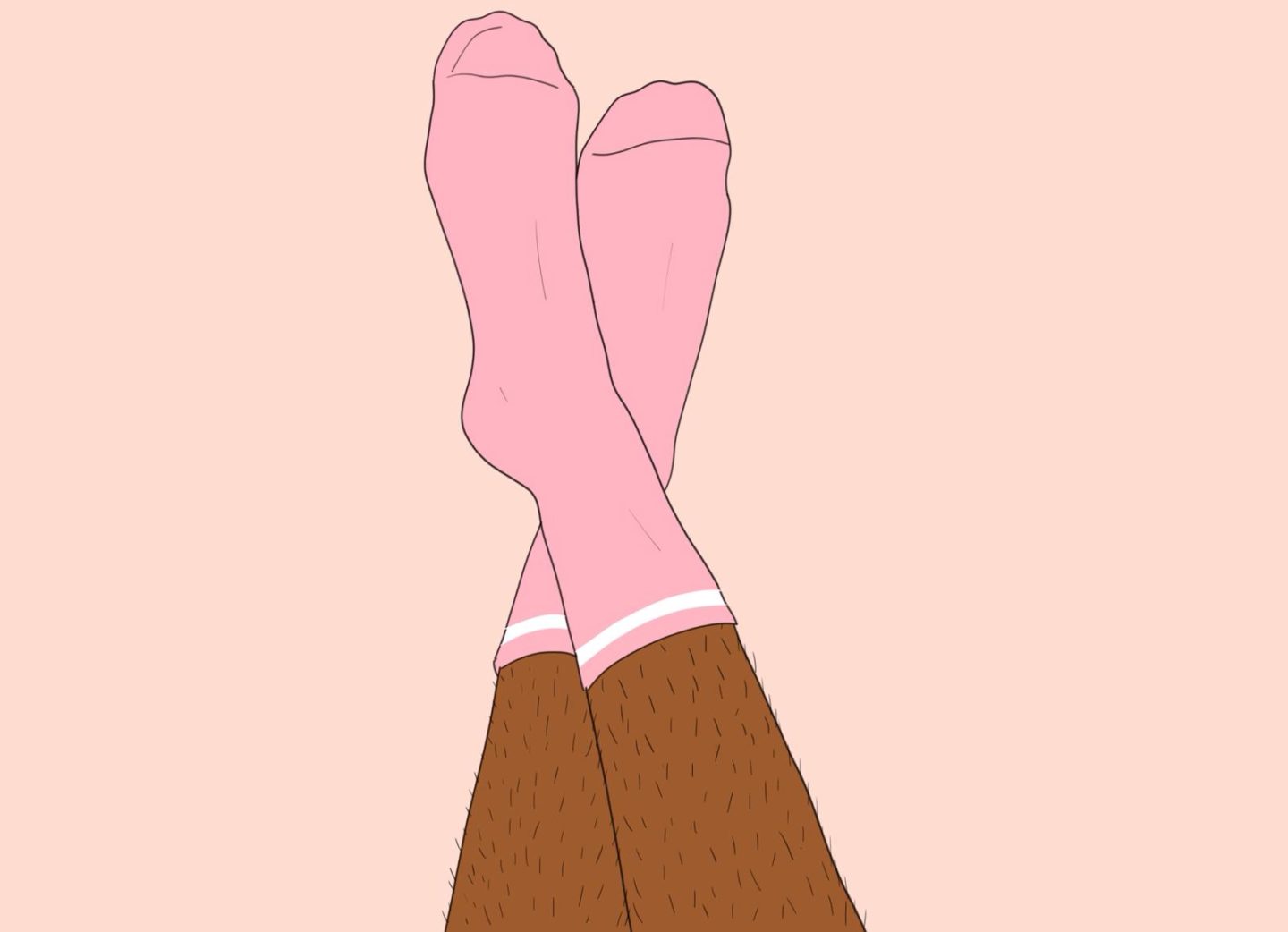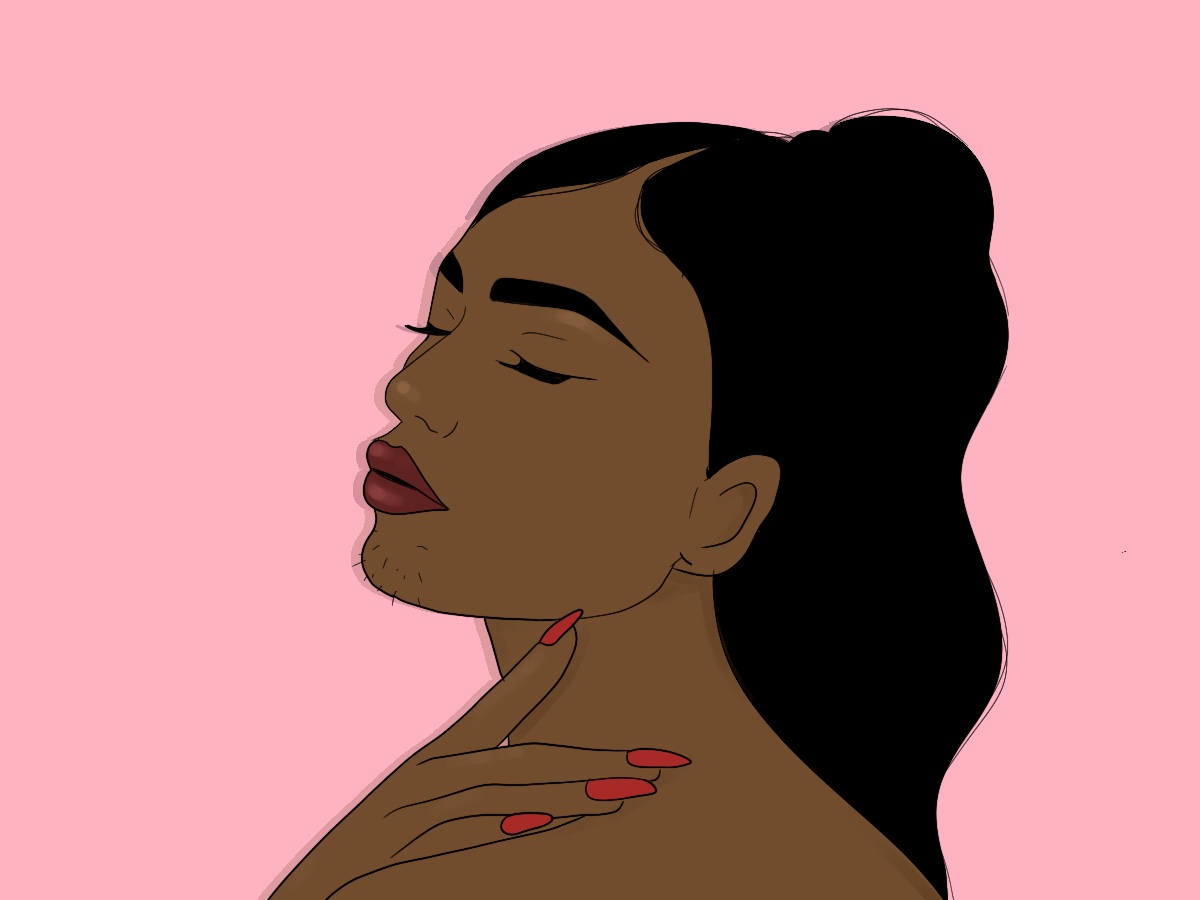Give me a month, and I will give you a beard.
A thick black bristly beard that would be the envy of every 15-year-old struggling with their starter stash.
The only thing is that I’m biologically female.
No, I don’t take testosterone, and I am not a trans woman. I am simply hairy.
Body hair has become almost a secret shame for women, with the expectations of hairlessness on everything but the perfectly silky hair on the head. Women were shamed for leg and underarm hair ever since the 50s when companies realised they could double their profits by selling razors to women too.
This beauty standard pushed the idea that women were naturally smooth like a dolphin, and if you weren’t, then there was something wrong with you. How many girls sat crying after trying to shave for the first time because others saw the hair on their legs?
How many of you had that moment where you went from being a little girl to being someone who had expectations of appearance because a fundamental part of your body was deemed wrong and disgusting?
That body hair was disgusting simply for daring to exist on half of the world’s population.
We have seen a rise in women taking back their right to not shave their legs and underarm hair, with it being tied to the feminist movement in the 60 and 70s. Body hair became a symbol of empowerment and personal choice.
But only the right kind of body hair.
Facial hair
Facial hair on women is something that is seen as impossible. That it should only exist on men and no one else. It has been used to mock older women in TV and films when they are experiencing menopause and suddenly sprouting chin hair.
It is used in transphobic propaganda, making vulnerable trans women terrified to have even the hint of stubble showing.
Feminism isn’t including facial hair because, for some reason, it isn’t seen as empowering as leg hair. When it is just the same hair in a different location.
As a kid, I was convinced I was the only one that had to wax their upper lip. I thought something was wrong with me and that I couldn’t tell anyone because then I would be the butt of the joke.
Now as an adult, I know that not only am I normal but also that millions of women worldwide experienced the same kind of isolation and fear I did. Well, it is time to change the narrative, so our sisters know they are beautiful and that facial hair is no big deal!
Dysphoria

Trans women will be familiar with this word and its connection to facial hair. But there is often a misconception that they are the only ones who experience it.
Dysphoria is something that can have a lot of power over you. It can tell you you’re too fat, too ugly or too weird looking. It has a strong route in the Western beauty standard and its idea of gender.
Much of dysphoria comes from what society has deemed to be female. That if you don’t meet this basic standard, then you can’t call yourself a woman. This outdated notion is not only routed in transphobia. It is dangerous for our trans sister but also for cis women as well.
Many women are living with a condition known as polycystic ovaries, also known as PCOS. This causes your body to experience extreme hormonal imbalances. As a result, you experience painful and irregular periods, a higher risk of type two diabetes and cancer and, of course, excessive hair growth.
It is an incredibly common issue that causes a lot of cisgender women to feel as though they don’t fit into the small box of what women should be. They feel wrong in their own skin because of facial hair that they have been taught all their lives that women shouldn’t have.
The sad fact of the matter is that it s very difficult to access hormone therapy for PCOS unless you are experiencing fertility issues. Providing medical care for women isn’t seen as a priority unless they are trying to have babies.
But this article isn’t about the injustices in the medical world for women. It’s about facial hair.
With excessive facial hair on women being pretty common, it seems ridiculous that it is still only associated with being a sign of transness.
When facial hair on women is used as the butt of a joke, it creates the idea that women who have it deserve ridicule. This makes a dangerous environment for trans women and cis women. It’s bad enough that some people want trans women banned from women’s toilets, but these attitudes will also fit any woman that doesn’t fit in with this narrow beauty standard of the female gender.
It is one thing to experience dysphoria because of your own brain, but when others are reinforcing it by rejecting women from safe female-oriented spaces.
The media
Think when the last time you saw a woman with facial hair in the media.
I know when I did. It was when the movie The Greatest Showman came out. It was amazing at the time to see a plus-sized woman getting to look beautiful and be a star and have her shown with a full beard. It was an incredible experience.
However, there is an issue with this portrayal. First of all, its setting is a freak show. The only representation we get of women with facial hair in a blockbuster movie is about how people want to go stare at the freak.
Was that really a good message to be sent to little girls getting the first signs of stubble on their top lip?
But you know what? We can overlook that because the movie did have a pretty empowering message about being seen despite society’s opinion of you. However, what we can’t forgive is that the actress portraying the bearded woman has no facial hair in real life.
Now I know things are faked all the time, and she was amazing in the role. But they didn’t even audition any real-beared women. Right now, there are two classically trained bearded women in America who could have at least been considered for the role.
The issue is that facial hair on women is considered a costume. Something there to make an interesting visual spectacle, but God forbid it to be used to empower real women with facial hair.
The sad truth is that the reason for this comes back to capitalism and its forced beauty standard.
It is not deemed profitable to show a real woman with a real beard as there is a belief that it would make the audience uncomfortable. They want to sell the glitz and glamour but without the reality.
Even in a movie about oppressed people living with what’s considered deformities, the story still decided to focus on Zendaya and Zack Efron’s characters’ romance. That’s because they wanted to provide the audience with some conventionally attractive people for the audience to stare at.
Imagine how revolutionary it would have been if the bearded woman was the one that got to fall in love. If we got to see a portrayal of a woman with facial hair where she was allowed to feel beautiful and powerful with no need to change herself to fit a beauty standard that changes every month just to sell people things.
Think what that would have meant for little girls who felt ugly because of their facial hair.
But no. We got two beautiful people falling in love. And the bearded woman fell into the background.
What can be done?
It’s easy to feel hopeless about the situation. The world seems so set against facial hair on women that it feels less like an uphill battle and more like a slaughter.
Well, the first thing I want to make very clear is that personal choice is key here. If you want to use hair removal, that’s fine. Removing facial and body hair is fine. I don’t think I need to build on that.
But personal choice also stretches to women wanting to grow their hair. It’s perfectly natural and can actually be beautiful. Frida Karlo is famous for her self-portraits, where she rejected the Western beauty standard and showed off her unibrow and upper lip hair.
Embarrassing the incredible art of our past that showed women have always had facial hair and not only accepted it but embraced it. Surrounding yourself with support for your personal choices about your body hair will give you the power to decide what you want.
If that choice is to reject the beauty standard and grow yourself an amazing beard, then that’s up to you.
But the takeaway here is that no matter what you choose, it is the right choice. There is no right or wrong answer. It only matters what you want and what makes you feel comfortable.
Going forward, you just need to remember that the only way we can build a future together where all women are empowered to live their lives how they want is by lifting up others. So don’t make comments about others’ facial hair or appearance. If they’re happy, then that’s good enough.
Just think of that little girl you used to be. Make sure they know that they are safe to be who they are now.
Find more feminist articles here >
Written by Jex Armitstead
Illustrated by Francesca Mariama

